Same-Day
Dentists
We accept new patients and walk-ins without emergency dentist appointments. Come to us if you need immediate pain relief and urgent dental care.
Latest
Technologies
Our emergency dental office in Hamilton is equipped with the latest technologies. We guarantee a comfortable and pleasant experience with exceptional results!
Urgent
Pain Relief
If you’re experiencing a dental emergency, we’ll focus on alleviating your pain and then treat the problem. Get free advice at our emergency dental clinic in Hamilton.
Need an Emergency Dentist Appointment?
Our Dental Emergency Clinic in Hamilton, Ontario is Open on Weekends and Afterhours
Our dentists remain open on weekends, primarily to accommodate busy schedules and handle unannounced dental emergencies.
For an Emergency Dentist Appointment
Emergency Dental Services
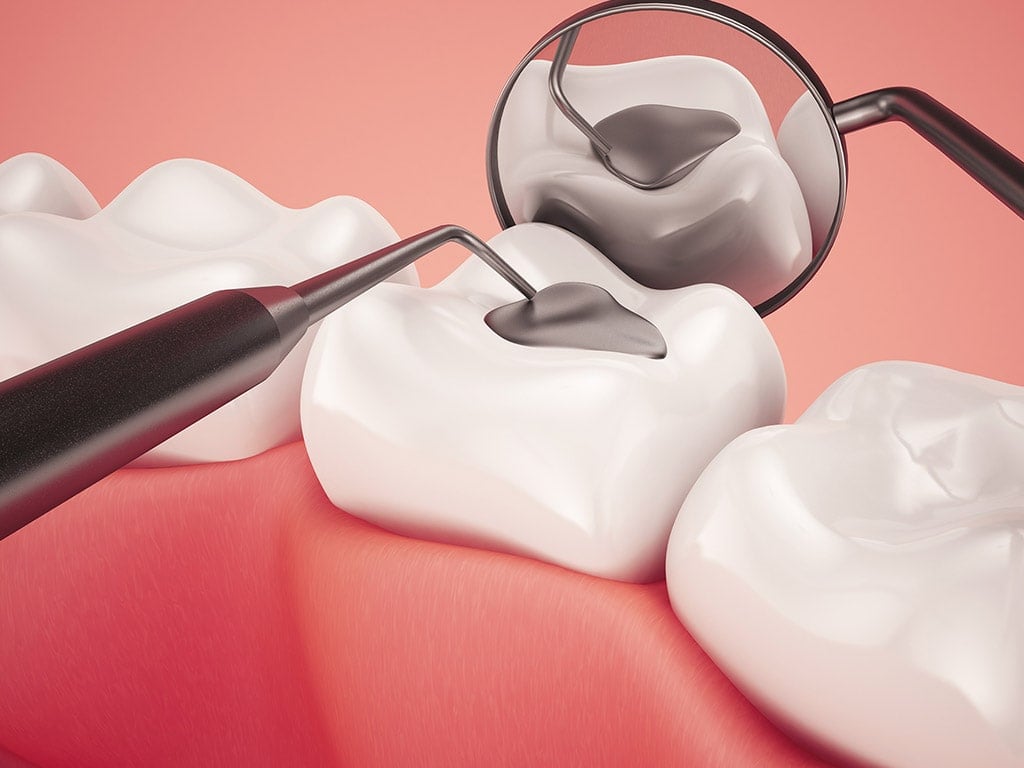
Emergency Dental Fillings
Has tooth decay destroyed a chunk of tooth matter and left behind a cavity that needs filling? Or perhaps an existing restoration has fallen out of place? Whatever the emergency, we’re here to help.
Call us immediately so we can guide you on sealing up the cavity temporarily, as this will prevent bacteria from penetrating your tooth and leaving the roots exposed. Our dentist will first clean the tooth to eliminate tooth decay and then guide you on choosing from gold, porcelain, silver amalgam, plastic, and composite resin fillings.
Emergency Tooth Extraction
An injury to the jaw, swelling, inflammation, and toothache are all indicators of a dental emergency. Often, when our clients come to us for emergency tooth extractions, it’s after they’ve taken a wait and see approach for days, hoping the pain will subside on its own. In our experience, this hardly ever happens and an infection will only get worse with time.
Our emergency dentist in Hamilton, ON will first assess your emergency to identify whether you need an urgent dental extraction.


Emergency Root Canal
When an infection penetrates a tooth, a simple filling will not fix the problem. The only alternative to extracting the tooth entirely is to perform a root canal, which will remove the nerve and pulp, and prevent the infection from spreading.
Severe pain, pus, bleeding, discolouration, and exposure of the pulp and nerve is an indication that you require an emergency root canal. You may experience intense discomfort that extends not just to the tooth in question, but to a wider area. Sometimes, a small red bump may be seen near the affected area, indicating the development of an abscess.
Visit our emergency dentist to find out if you need an emergency root canal.
Emergency Dental Surgery
When you’re going through something as critical as oral surgery, you’ll need a dentist you can trust. Our urgent dentists are experts in dealing with oral trauma, so you can rest assured that you are in safe hands.
Our oral surgeons can perform simple extractions of visible teeth, surgical extractions of teeth embedded below the gum line, and impacted tooth removal.
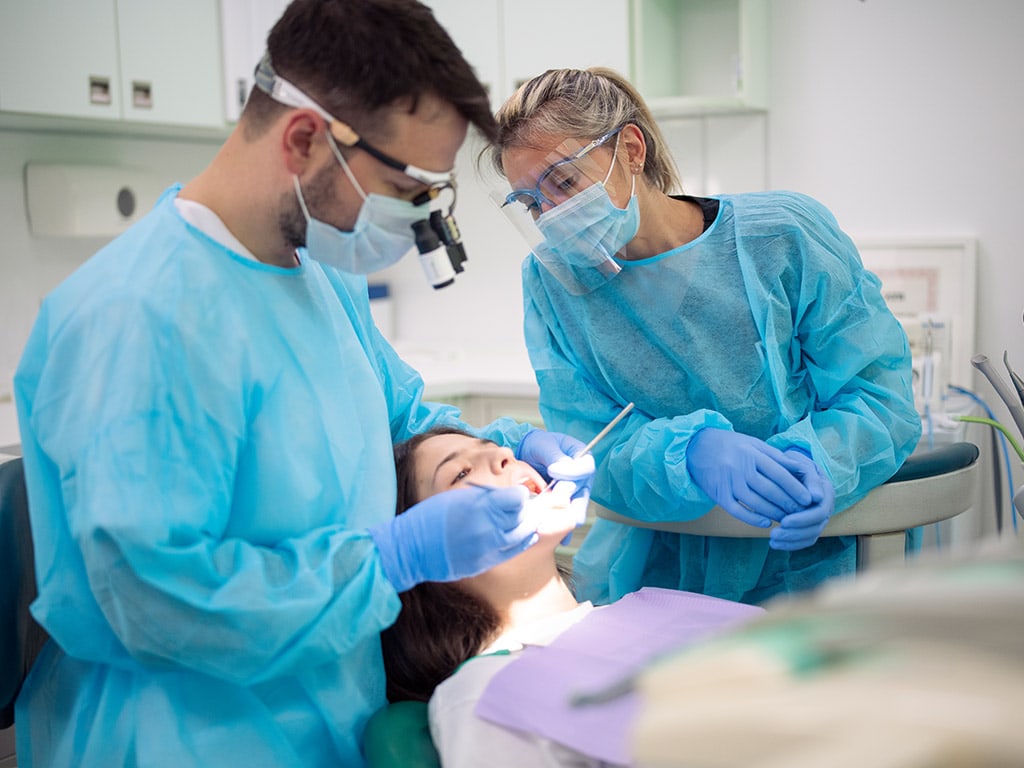
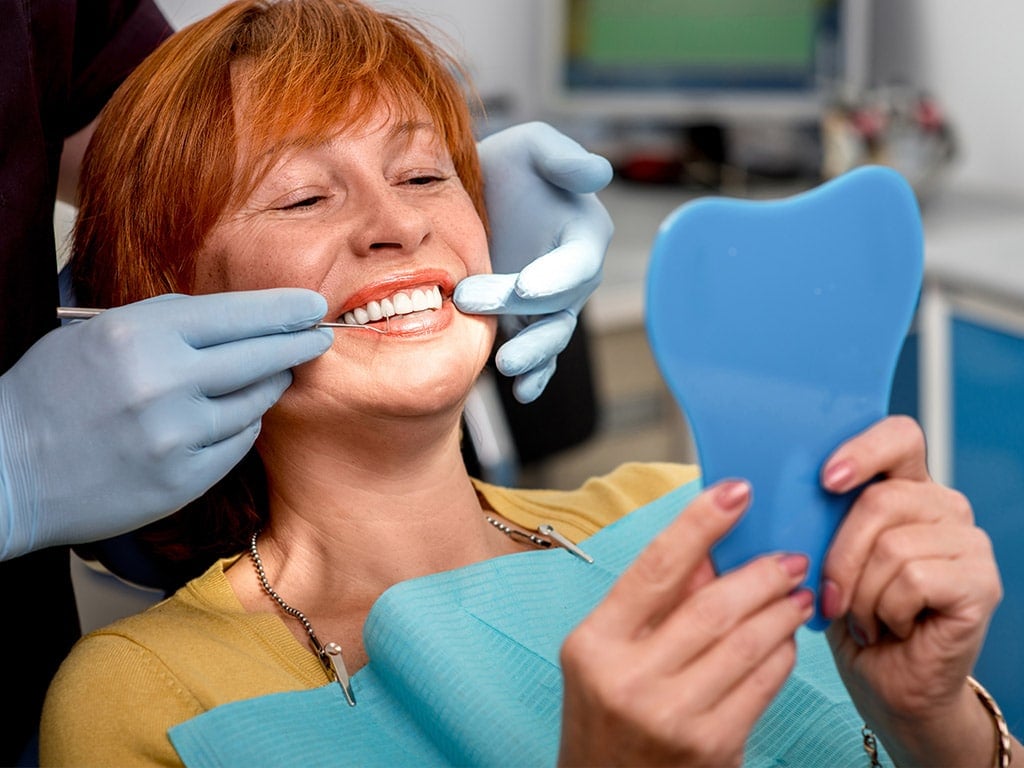
Emergency Tooth Infections
Severe tooth pain with or without swelling can signal infection, decay or an abscess. Depending on the toothache, we will advise you to rinse your mouth with either cold or warm water to alleviate the pain.
We can also prescribe over-the-counter painkillers for tooth pain. However, these are only temporary solutions. The infection, left untreated, can severely damage the surrounding tissue and teeth and even spread to the rest of the body.
Contact us for a free assessment over the phone.
Emergency Tooth Accidents
If a trauma or accident knocks out a tooth, you have little time to waste. The tooth can be reattached to its socket if it receives emergency care within the next couple of hours. The faster you get to us, the more likely that we can help restore your original tooth.
Failing to attend to a damaged tooth can also cause bacteria to penetrate the inner tooth chamber and cause infection. Get in touch with us, and we’ll guide you on the emergency home aid required to preserve your tooth or teeth.
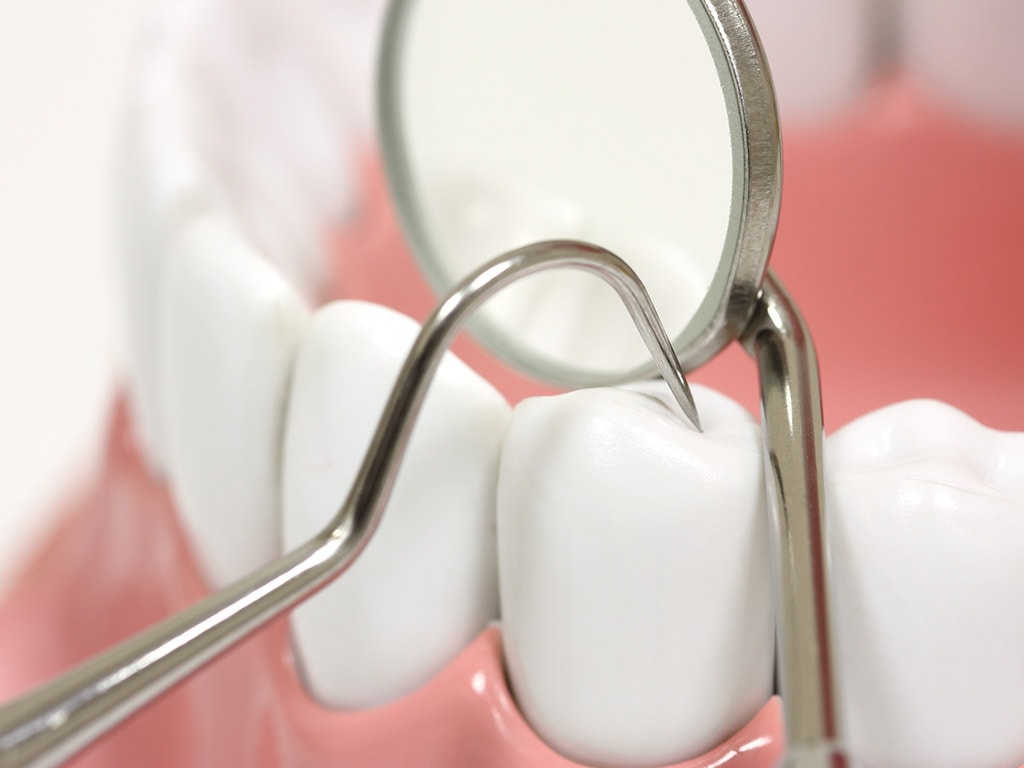

Emergency Wisdom Tooth Removal
A wisdom tooth extraction is typically not considered an emergency since there is usually enough time to plan a course of action for removing the tooth. However, when one or more wisdom teeth are impacted, it can lead to severe pain and discomfort.
If you’re suffering from severe wisdom tooth pain, please call us to schedule an emergency wisdom tooth extraction.
Emergency Pediatric Dentistry
Emergencies and unexpected injuries are especially common with children. Our team at Hamilton Dental offers same-day emergency dentistry for little ones facing unusual oral pain.
Whether it’s bleeding, swelling, a knocked-out or chipped tooth, our pediatric team will soothe your child and perform the necessary oral procedures. We also offer child-safe sedation for children with low pain thresholds.
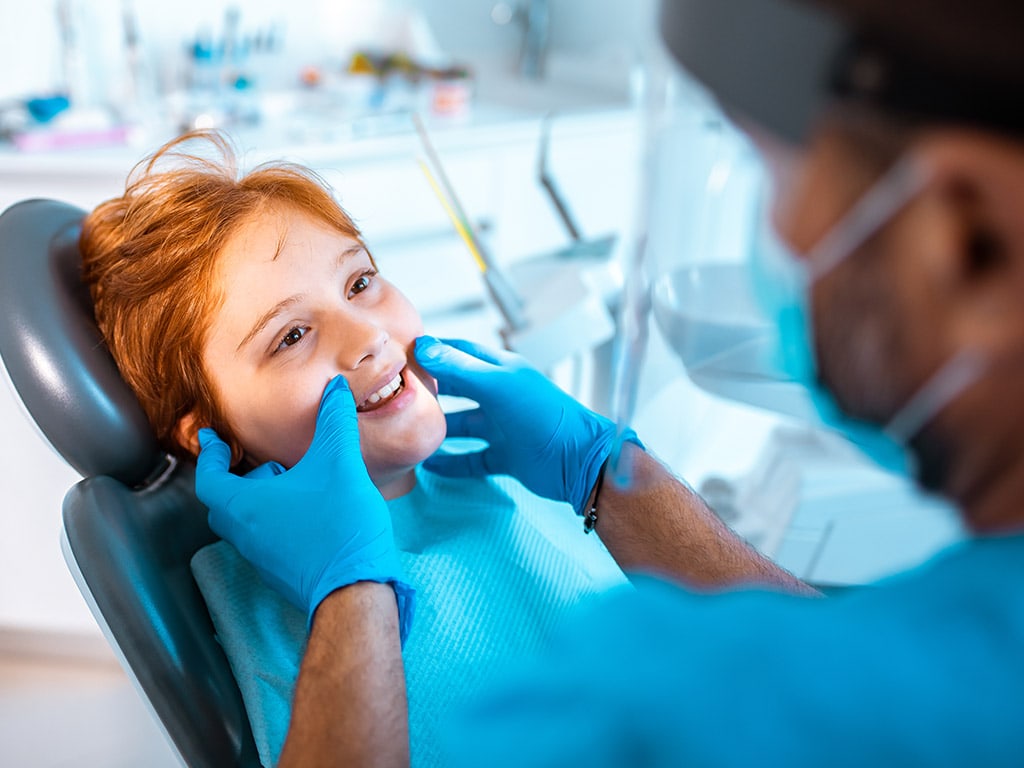
Free Assessment Over the Phone
Facing a dental emergency and need some advice? We offer free assessment over the phone.
Sedation Techniques
Our asleep dentistry services ensure that you have a painless experience at our clinic. Depending on the dental procedure and your feedback, one of the following sedation techniques may be administered to you.
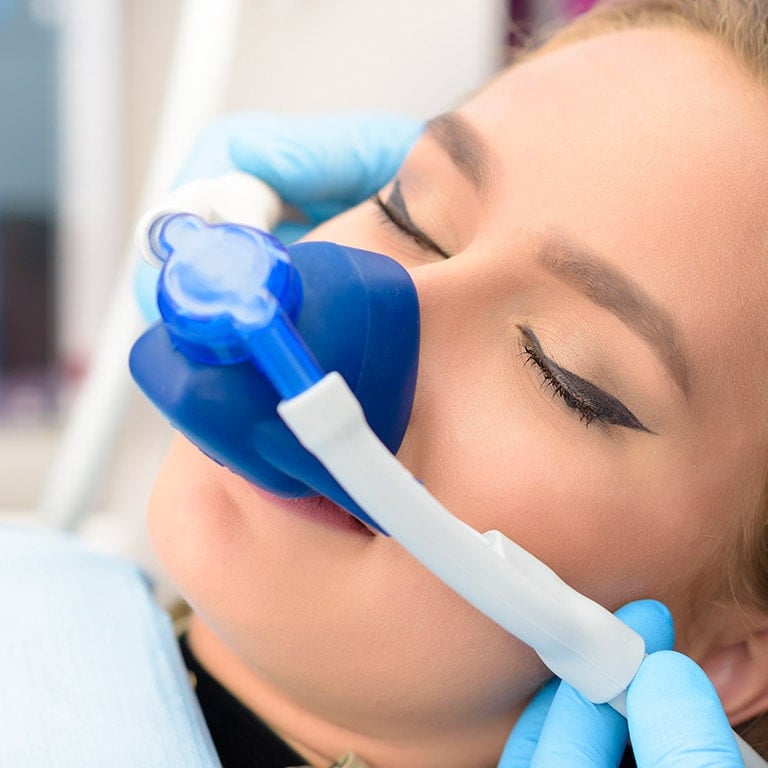
Conscious
Sedation
A form of inhaled sedation, this technique will require you to breathe in nitrous oxide/ laughing gas. By using a mask, our dentist will carefully control your intake of gas.
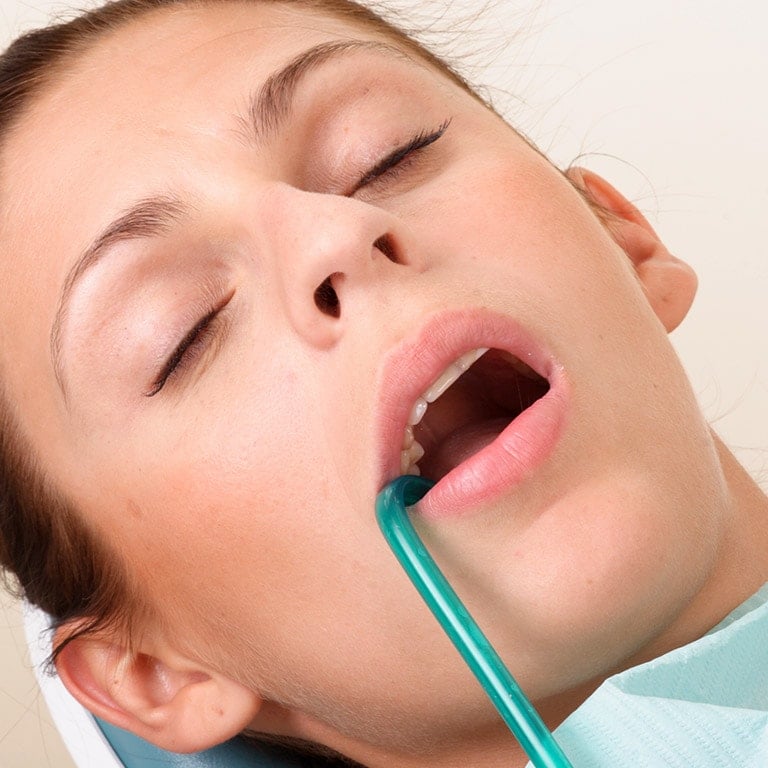
Oral Sedation
Dentistry
Typically delivered an hour before the dental procedure, sedative pills are the most commonly used technique.
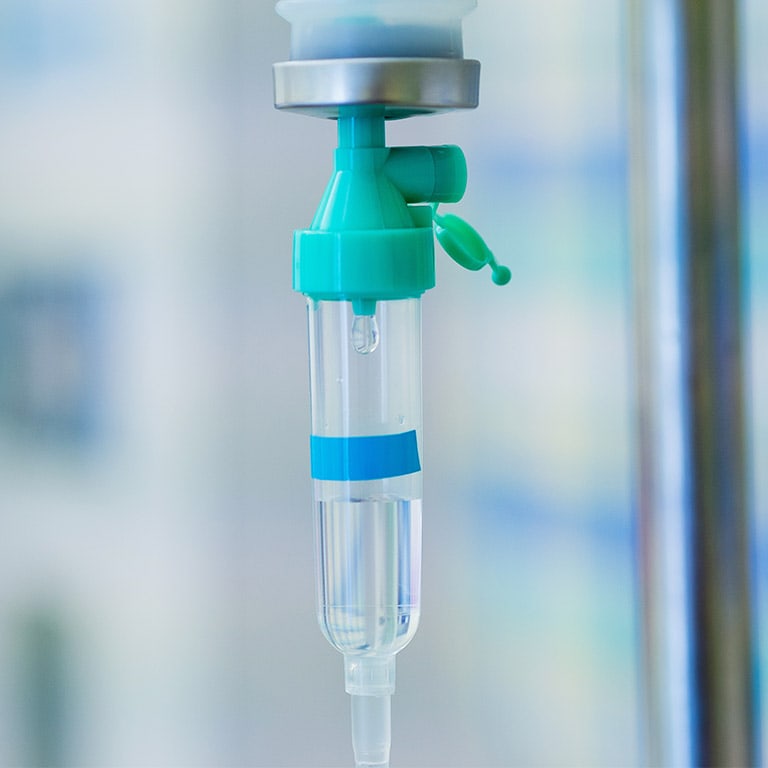
IV Sedation
Dentistry
In cases where sedation is needed for more complex procedures or patients with strong dental phobias, this technique is administered intravenously and takes effect very quickly.
Family Dentistry Services
As a family dentistry clinic, we offer a wide range of services for your whole family.



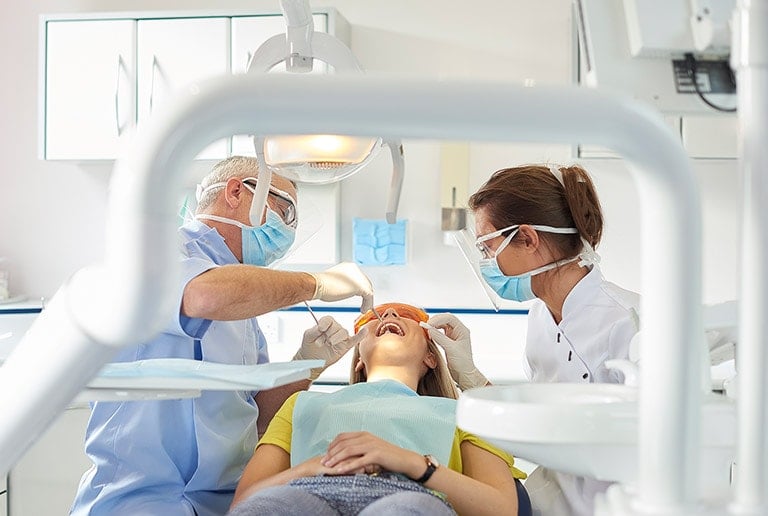

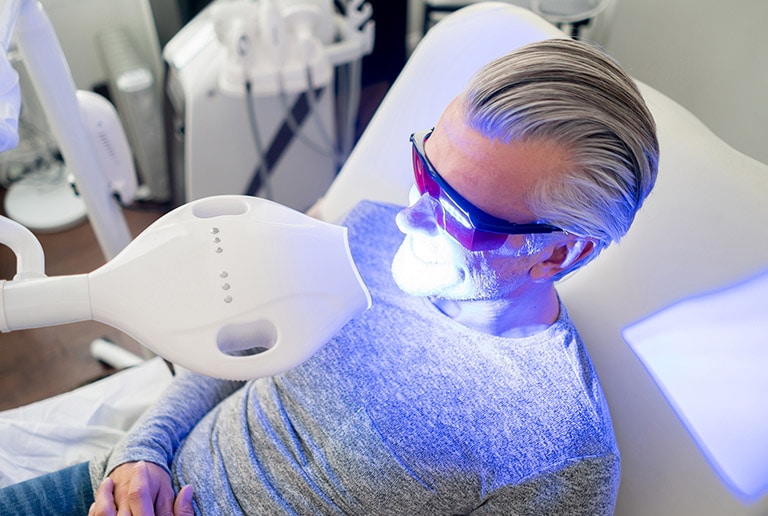
FAQs
What is a dental emergency?
Any oral pain that hinders you from your regular activity can be classified as a dental emergency. While most dental emergencies need to be treated within the first few hours to prevent infection, others can be treated at your earliest convenience, provided you follow some basic protocol.
If you aren’t sure what to do, call our emergency dentist in Hamilton, Ontario, to discuss your emergency. We accept patients of all ages. We’ll give you a free emergency consultation and arrange to see you as quickly as possible. You are also encouraged to walk in if you’re in the immediate vicinity. Our top priority will be to help you resolve the pain. We have experienced, same-day dentists who will discuss the best therapeutic solution for you. So, whether you need an emergency dentist open on Saturday or a dentist that opens on Sunday, we’re here to help!
How will I know if the pain I am experiencing is an emergency?
Are you in severe pain? Is there any bleeding that does not seem to stop? Is your tooth falling out? Is your tooth showing signs of infection–swelling, pus, tooth discolouration? If you answered yes to any of these questions, there is a very high chance that you’re experiencing a dental emergency.
Contact us immediately–we provide emergency dentist appointments during the weekend as well as during after-hours.
What should I do if my tooth is dislodged?
In emergency dental situations, you should see a dentist as soon as possible. To save the tooth, you must replace a dislodged tooth within one hour of its falling out.
Hold the tooth from the crown, rinse it gently and try to place it back into the socket until you reach an emergency dentist in Hamilton. If the tooth keeps falling out, fill a small clean container with a bit of milk or lightly salted water, put the tooth in it and visit an emergency dentist in Hamilton.
What should I do if I have a toothache?
Rinse your mouth with warm, saline water to clean any irritating debris. Try to floss gently and remove particles from between the teeth. A cold compress on the cheek and over-the-counter painkillers can also help relieve pain until you visit the dentist.
You may also want to try some simple home remedies. For instance, garlic is an effective ingredient that releases allicin to relieve your pain. Gently chew on a small piece of garlic with your affected tooth. A cotton ball soaked in clove oil, placed against the affected tooth, is also an excellent remedy. If you do not have clove oil, chew the clove or apply it powdered around the tooth.
What should I do if I break one of my teeth?
The first step is to stop the bleeding by applying very slight pressure on the area with clean gauze. You can also try using a cold compress outside the mouth to alleviate the pain. The sharp edges of a broken tooth may hurt your tongue, so you might want to purchase dental wax from a pharmacy and apply it to the tooth.
Pain may not always be present. However, the internal parts of the tooth are still at risk of decay if left unprotected. Consult an emergency dentist to determine how serious the problem is.
What can I do if I dislodge the crown of my tooth?
Place the dislodged crown in a small box and bring it to us; we’ll try and replace it. If brushing causes distress, rinse your mouth with warm saltwater. Keep the area clean and free of debris. Clean the inside of the crown gently with toothpaste. Then, use dental adhesive, wax dental cement or sugar-free gum to temporarily “glue” back the crown. If the nerves are exposed, you may experience pain. You could try alleviating the pain with over-the-counter painkillers. Avoid eating hard or sticky foods, sweet foods and acidic drinks. Also, avoid chewing on the side that is affected.
What should I do if I have lost my filling or it has come loose?
Remove the filling and keep it safe in a bag or container. Gently brush the affected tooth, removing debris that may have become lodged in the newly exposed cavity. If brushing causes distress, you can also gargle with salt water. Until you get to the dentist, try placing a small wad of sugar-free gum or dental cement in the open cavity.